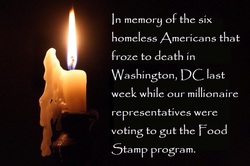Maria is that kind of disciple. She exudes kindness and joy, she serves others with compassion and tireless dedication, and she has opened herself to allowing God to use her wherever there is a need. She has more stories of how a common ordinary event became a conversation about what her faith, her church community, and her ministry means to her. This weekend she shared a new story about how an annual exam became an opportunity to comfort a grieving Dr. and share a wonderful Stephen Ministry book, "Don't Sing Songs to a Heavy Heart" Kenneth C. Haugk. By sharing contact information, she is planning to continue her care for the caregiving Dr.. When she finished her story, the group said, "We want to be like you." That's what discipleship looks like! It is about stories of God at work in our lives in such a way that we can't help but share it with others, not in ways that bang people over the head with doctrine and requirements, but with love and compassion.
There are so many moments to celebrate as we share our stories of God at work in us, through us, and around us in the world. I would like to stay in those celebration moments, but there are other stories that need attention. I imagine that in every congregation there are those who have disagreed with another member, a pastor, or staff member and have reacted by talking to others about it and often passing along hurtful information and sometimes they leave. We don't like to do the hard work of discipleship, that part that requires us to face one another, forgive each other, and work for reconciliation. It is an ugly scab on a wound that hurts God's people. We need to learn to step out of our comfort zone and talk to each other. I have known only a few people who have intentionally sought to cause harm in a congregation. Most people, including pastors and staff, are trying to do the best that they can to participate in the body of Christ in the midst of diversity. It is not always easy and some situations can be painful, sometimes there is not an easy resolution, but holding on to grudges and talking to others without talking to the persons involved is not good discipleship, it is sin. Sin is one of the things we are to turn away from, not from each other, and yet it is happening and allowed in congregations. Groups of people may know detailed information about a situation and just accept that it's okay for a person to stop attending worship because of it. We let people go, sometimes we even listen to their story with a sympathetic ear, but don't talk with them about reconciliation. What if we asked people, "What are you going to do to be reconciled with that person?"
Accountability to one another and the community is part of discipleship. It is not fair or appropriate for people to remain in conflict. Each person deserves a fair hearing and an opportunity to speak to an accusation made about them. But facing one who has hurt you or made you angry is not easy, and we like to stay in the easy moments. What we forget is that the journey to reconciliation may be difficult, but it may also be the path to freedom and release. That's what forgiveness is all about, freedom and release. When we confess our sin in worship it is not because God desires to punish us, it is about facing the one we have sinned against, and receiving the freedom and release God desires to give. Remembering that when we sin against another, we are sinning against God reminds us just how important it is to try to reconcile.
How do we hold each other accountable? How will we address the brokenness in our congregations and in our lives? Discipleship requires that we find the path and trust that God will be cheering us on.


 RSS Feed
RSS Feed